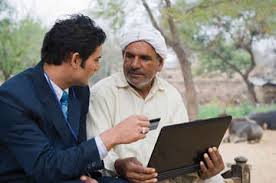We have often heard people complimenting others saying that he is a very wise person that is why he is so successful in life. My parents have often told me to be wise when making decisions. What does this term wise really mean? Does it mean experienced or does it mean intelligent? Baltes and his colleagues(1990) define wisdom as the “ways and means of planning, managing, and understanding a good life” In simple words it would mean “It is an expertise in conduct and meaning of life.” I would like to give examples of wise people we have come across over the years: Mahatma Gandhi, Socrates, Mother Teressa, Dalai Lama, Nelson Mandela, Winston Churchill and even our beloved Oprah Winfrey.
Some philosophers and theologians consider it to be one of the four cardinal virtues (along with courage, temperance, and justice). It is considered as a cognitive and motivational disposition that in itself designates not only fitness for individuals achievements but also the idea of convergence of individual goal achievements with becoming and being a good person from a communal and social-ethical point of view. It can impact human choices and fuel pursuits that lead to an enhanced personal functioning and communal good. It like all other virtues is defined differently in different cultures. Though some similarities exist across cultures, followers of Western and Eastern ideology differ on their views of what makes someone wise. In eastern cultures the emotional aspects take precedence over the cognitive aspects whereas in the western cultures the cognitive aspects is chosen over the emotional aspects. Thus personal qualities such as compassion, open-mindedness, humbleness, and others may be a part of a description of a wise person in the eastern cultures, while intelligence, problem-solving and planning may be more emphasised in Western Culture.
Development
How does one then develop it? Many of us feel that wisdom comes with age, i.e. a persons age is directly proportional to the level of wisdom. Undoubtedly our grandparents are much more wiser than us. But is it only age? Psychologists offer different view points on what determines wisdom. Eric Erikson emphasised that wisdom is gained through resolving conflicts, especially those conflicts that involve integrity and despair.Theorists such as Sternberg(1998), Baltes (1993) however suggest that wisdom builds on knowledge, cognitive skills and personality characteristics and that it also requires an understanding of culture and the surrounding environment. wisdom grows as people learn to think flexibly to solve problems and such problem solving entails recognising ideas according to place and culture. Also creativity, openness to experiences, motivation and psychological mindedness determine Wisdom of an individual. Studies by Baltes and his colleagues also indicate that people who discuss dilemmas with loved ones and others and then are allowed the time for reflection show increased wisdom-related performances.
Wise people and their Characteristics
What characterises a wise person? The following characteristics have often been agreed upon to characterise a wise person:
- Creative
- Open-minded
- Compassionate
- Reflective
- Willing
- Non conformist
- Non selfish
- Patient
- Disciplined
- Humble
In the end I would like to conclude by quoting Aristotle who stated that:
“KNOWING YOURSELF IS THE BEGINNING OF ALL WISDOM”





23 Comments. Leave new
A very wise article ?
wow! very well written.! Food for thought..
Worth reading.
good content and nicely scripted!
True. Very well written!
very well written 😀
Good Work 😀
As this content is worth reading 😀
really well written
Nicely written
came to know a lot about being wise 😀
and the traits are shown very well with the help of points 😀
loved it !
Worth a read
Good one.
Great!
nice one
very well explained!!
Amazing and enlightening! Loved it 🙂
very well said and hence written
Deep and well thought of!
An article worth appreciation. I enjoyed reading it.
Nice points
this is one amazing article I’ve come across recently.
Well articulated.
Perfevt points 10 on 10
Nice work!